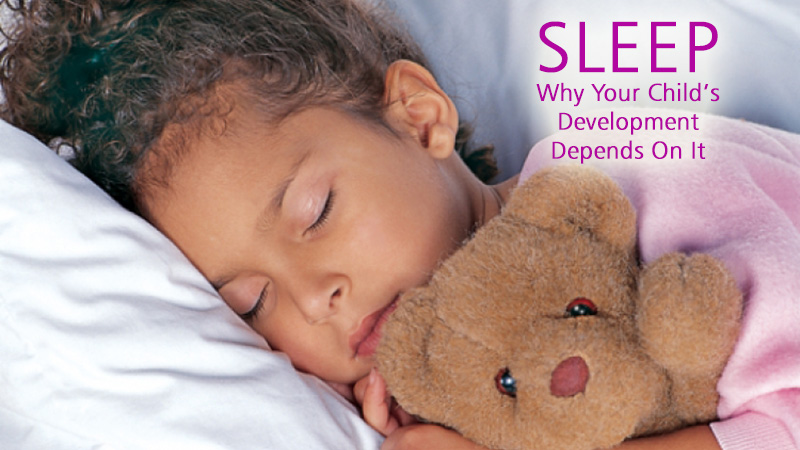Sleep: Why Your Child’s Development Depends On It
The impact of sleep-deprivation on adults is a well-researched area. Unfortunately, undertaking similar studies on infants and young children is a little bit more difficult – with complications arising due to quite appropriate ethical concerns about deliberately keeping little ones up all night.

That said, considering the worrying reports that our children are sleeping far less and suffering from far more sleep-disorders than ever before, the impact of sleep-deprivation on the youth of today is a crucial field of research.
Thankfully, more and more research is being done – with parental consent of course – and we are beginning to understand the impact of poor-quality sleep in children.
Early Brain Development
In the first few years of life your child’s brain goes through an astonishing period of development. While most brain cells are formed in the womb before birth, the majority of the neural connections, known as synapses, are formed post-birth in infancy and early childhood.
By the age of 3 an infant’s brain has twice as many neural connections as the average adult. After the age of 10 a process known to science as ‘synaptic pruning‘ will take place, where redundant connections are abandoned and those that remain become more entrenched and more powerful.
Everything your infant sees, hears, touches, smells or experiences plays a role in shaping their future brain. You may have heard a toddler’s brain being referred to as a sponge before. This is why.
Why Sleep Matters?
Sleep is when our brain processes what we have learnt during the day. This is true for adults and children. The difference for very young children is everything they learn is brand new. Sleep is when the brain makes sense of what their sponge soaked up.
One longitudinal study known as the Millennium Cohort Study, followed 19,000 infants born In the UK in 2000-1. Researchers looking at the data found that by the time they had reached the age 7, the children with less regular bedtimes between birth and the age of 3 were less proficient in skills relating to reading, maths and even spacial awareness.
Another similar published in the Canadian journal Sleep found that children under 3 who slept poorly had an increased chance of developing ADHD and experiencing language problems.
That in a nutshell is why sleep matters.
How much is enough?
There is no exact answer as every child is different. Babies even at a young age develop different personalities. In short a lot. More than you think. See here for exactly what the experts at the NHS recommend as guidelines for different age groups.
There are still many gaps in our understanding on the subject and a lot of research is still to be done in this field. All indications however, are that new findings will just confirm what we already know.
Sleep is vital for the healthy development of your child’s brain architecture and you should be doing everything in your power as a parent to ensure you little one gets enough and the foundations are solid for later life.
For more hints and tips there are many resources online that promote healthy sleep habits, see the Sleep Advisor blog for more information.



